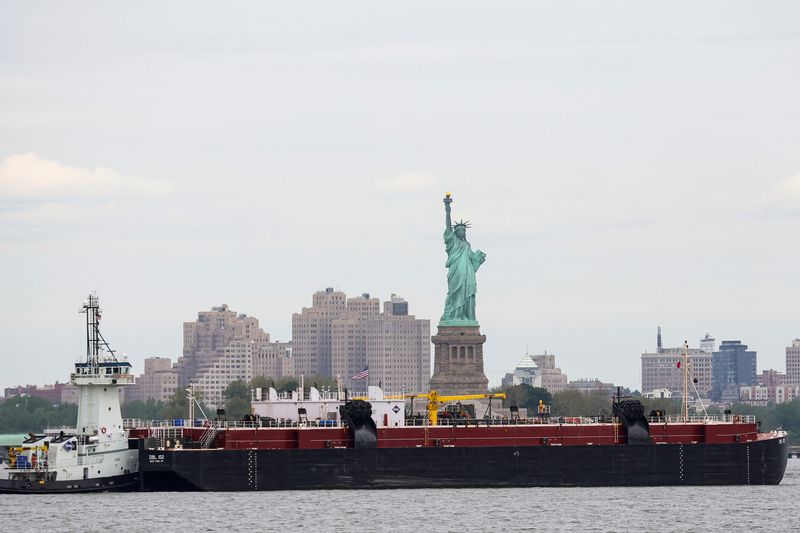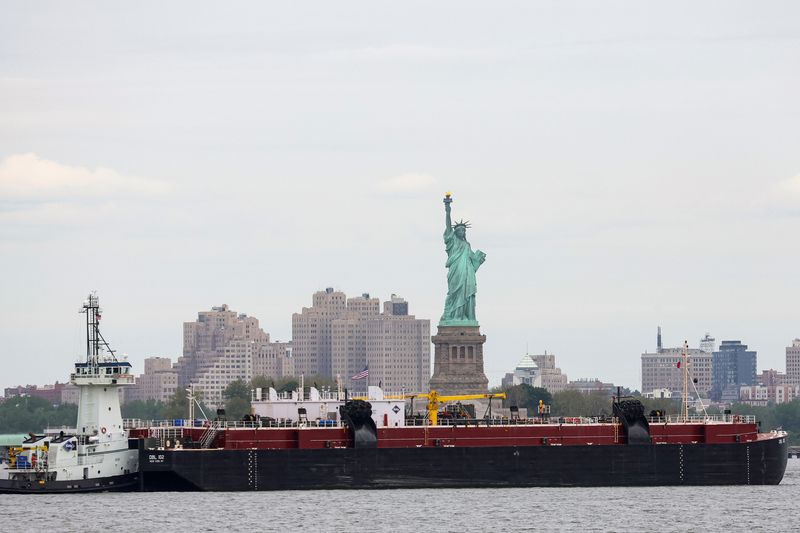
By Nicole Jao
NEW YORK (Reuters) -Oil prices rebounded on Wednesday, rising more than 2% after data showed U.S. crude and gasoline inventories fell unexpectedly last week and on reports that OPEC+ may delay a planned oil output increase.
After falling more than 6% earlier in the week on the reduced risk of wider Middle East war, Brent crude futures gained $1.81, or 2.5%, to $72.93 a barrel by 11:30 a.m. EDT (1530 GMT). U.S. West Texas Intermediate crude rose $1.85, or 2.8%, to $69.06.
U.S. gasoline stockpiles fell unexpectedly last week to a two-year low on strengthened demand, the Energy Information Administration said, while crude inventories also posted a surprise drawdown as imports slipped.
U.S. imports of crude oil from Saudi Arabia fell to their lowest point last week since January 2021, at just 13,000 bpd, down from 150,000 bpd the previous week. Crude imports from Canada, Iraq, Colombia, Brazil all slipped on the week, the EIA said.
“The most supportive element was gasoline inventories drawing amid higher implied demand week-on-week; lower imports helped crude inventories eke out a minor draw,” said Matt Smith, analyst at Kpler.
Reuters reported OPEC+, which groups the Organization of the Petroleum Exporting Countries and allies such as Russia, could delay a planned oil production increase in December by a month or more because of concern over soft oil demand and rising supply.
“OPEC+ has always advised that the unwinding of voluntary supply cuts would be subject to market conditions,” said Harry Tchilinguirian, head of research at Onyx Capital Group
The group is scheduled to raise output by 180,000 barrels per day (bpd) in December. OPEC+ has cut output by 5.86 million bpd, equivalent to about 5.7% of global oil demand.
A decision to postpone the increase could come as early as next week, two OPEC+ sources told Reuters.

“That they may be reconsidering the timing of a return of their barrels is not surprising given the weak macroeconomic realities, particularly in China, which have led to downward revisions in global demand growth estimates.”
OPEC+ is scheduled to meet on Dec. 1 to decide its next policy steps.
This post is originally published on INVESTING.



